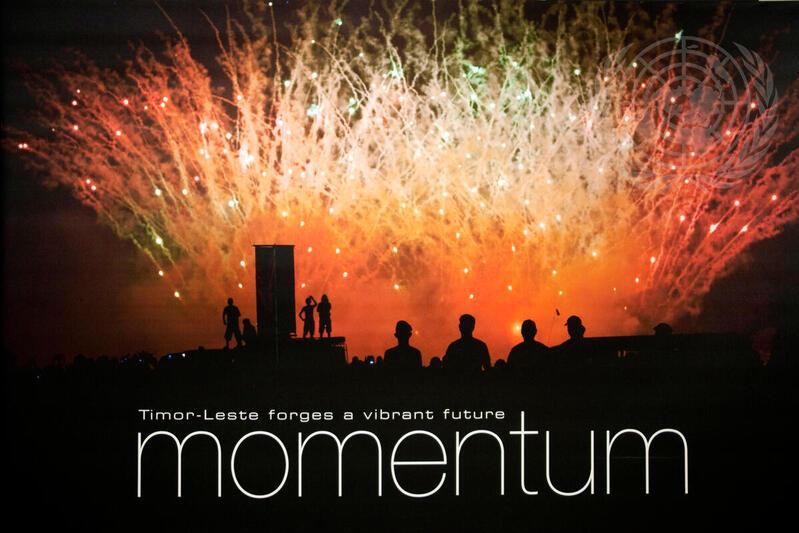Dili, 24 February 2010 - Timor-Leste has made remarkable progress since violence erupted there in 2006. On Tuesday, the UN Security Council met to discuss The Secretary-General's report on the country, as well as its progress and future. Gerry Adams reports:
Narrator: Despite the progress, Timor-Leste still faces daunting challenges. That's the assessment of Armeerah Haq, the UN Secretary-General's Special Representative to the southeast island nation. Ms. Haq spoke to the Security Council on Tuesday at the start of a debate on the country which the UN shepherded to independence in 2002. She describes the atmosphere in the country now:
Haq 1: There is a vibrant civic life with active commercial areas in Dili and other urban centers. Crime rates remain low and have shown a decreasing trend over the past year, with an average of 87 security incidents reported weekly to police during the period from 24 September 2009 to 20 January 2010, down from an average of 118 incidents reported weekly to police in the period from 9 July 2008 to 20 January 2009.
Narrator: She says Timor-Leste has reached a new stage in which the country is focusing on remaining stable, deepening democracy and the rule of law, reducing poverty and strengthening institutions:
Haq 2: Timor-Leste, under the stewardship of its national leaders, is now working to consolidate the gains of the past and to ensure a smooth transition to the recovery phase. This will require continued efforts on the part of the Timorese as well as the continued support of the international community.
Narrator: Timor-Leste is recovering from a dispute within the Timorese army in 2006. The country's Deputy Prime Minister, Jose Luis Guterres, says that problem too has been resolved:
Guterres 3: Today the camps that are closed and the IDPs have returned back to their homes. By working together with the United Nations and the international community, we were able to solve one of the most difficult and most complex problems in our country.
Narrator: As Ms. Haq said, Timor-Leste continues to face challenges. Perhaps the greatest in the long-term, she says, will be socio-economic:
Haq 4: In my visits outside the capital, local community members expressed their desire that development efforts should more effectively reach rural areas. Timorese leaders themselves have expressed similar concerns and it is essential that the government redouble its effort to ensure that develoment benefits are felt equally in the rural and urban areas. this will entail appropriate budgetary allocations to the social services sectors and strengthening and decentralization of line ministries.
Narrator: The rule of law with due respect for human rights is another area of government attention. In meetings with Timorese authorities, Ms. Haq continues to reiterate the UN position that there can be no amnesty or impunity for serious crimes:
Haq 5: On February 15, two additional defendants charged in relation to violence that occurred during the 2006 crisis were found guilty of violence against persons and property and illegal use of firearms, ammunition and explosives. One was sentenced to imprisonment for eight years and the other to six years and six months.
Narrator: UN Secretary-General Ban Ki-Moon has recommended in his report that the mandate of the UN Integrated Mission in Timor-Leste, UNMIT, be extended and also that his Special Representative establish a team to plan the downsizing of UNMIT during the period through 2012:
Guterres: We concur wit the assessment made in the report that there's a consensus in Timor Leste and that UNMIT should remain in Timor-Lete up to 2012.






